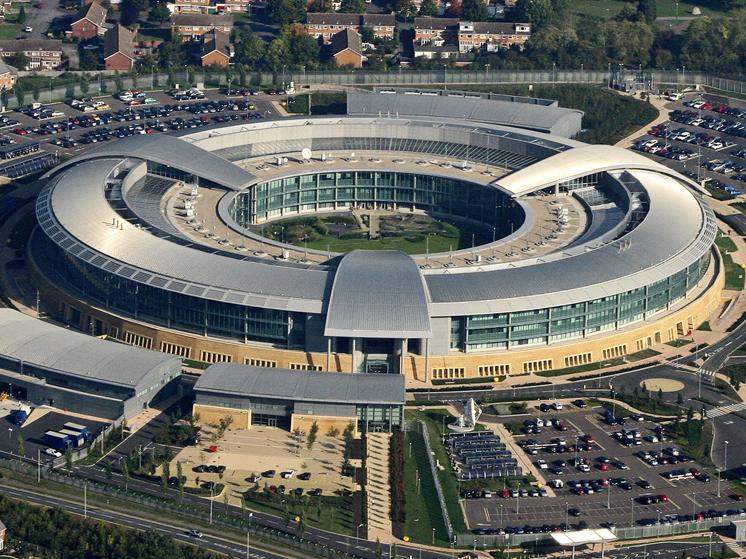
Brian Sims
Editor

Brian Sims
Editor
A COALITION of Human Rights organisations led by Liberty, Privacy International and Amnesty International has won what’s being described as “a landmark victory” for privacy and freedom of expression. In the final stage of a case started in the wake of Edward Snowden’s revelations about State spying, the European Court of Human Rights has stated that the UK’s bulk surveillance powers breached Human Rights laws.

Confirming sections of the lower court’s previous judgement, the European Court of Human Rights has found as follows:
*For decades, ‘bulk’ interception powers breached the rights to privacy and freedom of expression
*The bulk interception regime did not contain sufficient safeguards to protect against abuse. Before carrying out bulk surveillance, and when choosing search terms to find material, Governments must now obtain independent authorisation
*There were insufficient safeguards to ensure confidential journalistic material was protected. Governments must also obtain independent authorisation before looking at such material
*Powers used to obtain communications from private companies also breached rights to privacy and freedom of expression
The judgement is the latest stage of a long-running legal battle fought by Liberty, Amnesty International and Privacy International – working alongside seven other international Human Rights organisations – over the UK Government’s surveillance powers.
This case dealt with the historic UK surveillance regime, which was replaced in 2016 with the Investigatory Powers Act (known to some as the Snoopers’ Charter). The Snoopers’ Charter includes and expands on the historic surveillance powers at issue in this latest judgement. Liberty’s ongoing litigation over the lawfulness of the Snoopers’ Charter was put on hold by UK courts until the outcome of this appeal.
The judgement means the case against the current surveillance powers that let the State ‘spy’ on people can proceed. A hearing at the Court of Appeal is expected in the coming year.
Liberty’s lawyer Megan Goulding said: “We all want to have control over our personal information and to have a Government that respects our right to privacy and our freedom of expression. That’s what makes this victory, and the court’s recognition of the dangers posed by these mass surveillance powers, so important.”
Goulding added: “Bulk surveillance powers allow the State to collect data that can reveal a huge amount about any one of us, including our political views. These mass surveillance powers do not make us safer. Our right to privacy protects all of us. This decision takes us another step closer towards scrapping these dangerous and oppressive surveillance powers, while also ensuring that our rights are protected.”
The other international Human Rights organisations acting alongside Liberty, Amnesty International and Privacy International are the ACLU, the Canadian Civil Liberties Association, the Irish Council for Civil Liberties, the Hungarian Civil Liberties Union, the Legal Resources Centre, Bytes for All and the Egyptian Initiative for Personal Rights.
History of the case
The case goes back to 2013 following Edward Snowden’s allegations that GCHQ was secretly intercepting, processing and storing millions of ordinary people’s private communications and that GCHQ and the US National Security Agency were allegedly sharing people’s data.
Liberty, Amnesty International and Privacy International’s case was joined with two other cases at the European Court of Human Rights – one brought by Big Brother Watch, the Open Rights Group, English PEN and an individual and another brought by the Bureau of Investigative Journalism and an individual. All three cases challenged the UK’s historic bulk interception regime and the UK’s access to bulk data collected by foreign states.
In September 2018, Liberty, Amnesty International, Privacy International and seven other Human Rights groups won their challenge to the UK’s historic bulk interception regime (the Regulation of Investigatory Powers Act 2000) at the European Court of Human Rights.
In 2017, Liberty filed legal action over the legislation that had replaced the Regulation of Investigatory Powers Act 2000 in 2016, specifically the Snoopers’ Charter, arguing that the bulk surveillance powers in the current legislation also violate the rights to privacy and free expression and that there are insufficient safeguards to protect confidential journalistic and legally privileged material.
Liberty and the other groups appealed parts of the 2018 European Court judgement to the Grand Chamber in Strasbourg to seek a firmer ruling that bulk interception powers are by their very nature unlawful. Following an initial judgement in Liberty’s case against the Snoopers’ Charter, Liberty’s appeal was put on hold pending the outcome of this case.
Liberty and Privacy International have a separate case ongoing against MI5 and the Home Office after evidence disclosed during Liberty’s Snoopers’ Charter case revealed “long-term breaches of surveillance safeguards” by MI5 in relation to how it was handling data collected through surveillance.
Dorset House
64 High Street
East Grinstead
RH19 3DE
UNITED KINGDOM
01342 31 4300